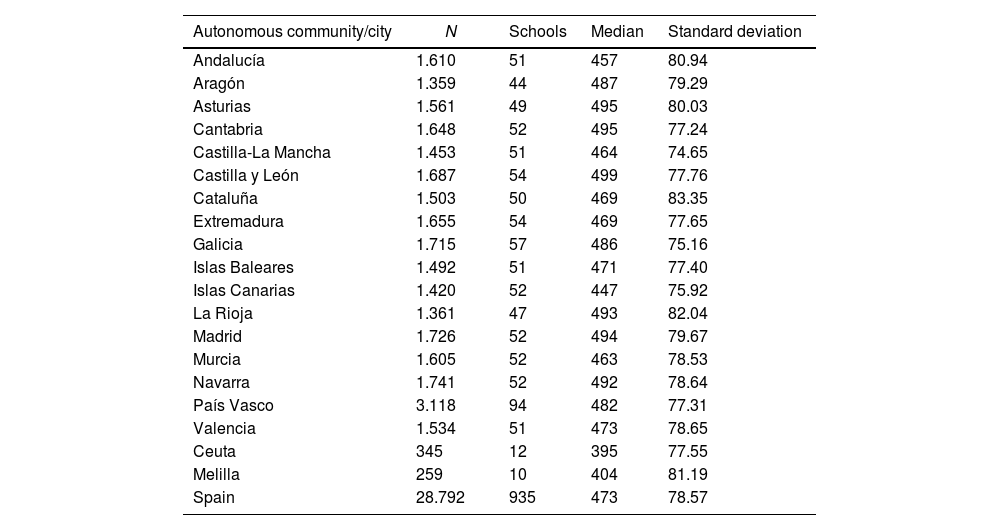Mathematical competence is fundamental for active, participatory and engaged participation in the 21st century, and for facing the challenges of a globalised society. This study aims to analyse the simultaneous effect of a set of predictors on the mathematical competence of Spanish students who have participated in PISA 2022. The sample consists of 28,792 Spanish students (14,465 boys, 50.24%; 14,327 girls, 49.76%), from 935 schools. Two questionnaires are used to collect data: one for students and one for school principals. A hierarchical linear model is used according to the three levels presented by the data (Level 1 = Students, Level 2 = School and Level 3 = Autonomous Community). At the first level, sex, socio-economic background, family cultural level, mathematics anxiety and self-efficacy is included; at the second level, the socio-economic background of the school; and at the third level, GDP per capita. The results show that girls experience more anxiety and less self-efficacy in mathematics than boys. The socio-economic background of the students, the cultural level of the family, mathematics anxiety and mathematics self-efficacy are significant predictors of mathematical competence. At school level, socio-economic background has an impact on achievement. These findings suggest the need to strengthen collaboration between school and family, as well as to provide specific training for teachers on how to address socio-affective feelings towards mathematics.
La competencia matemática es fundamental para participar de forma activa, participativa y comprometida en el siglo XXI, y afrontar los retos de la sociedad globalizada. Este estudio tiene como objetivo analizar el efecto simultáneo de un conjunto de predictores sobre la competencia matemática de los estudiantes españoles que han participado en PISA 2022. La muestra consta de 28.792 estudiantes españoles (14.465 chicos, 50.24%; 14.327 chicas, 49.76%), procedentes de 935 centros educativos. Se utilizan dos cuestionarios para recoger datos: un cuestionario para los estudiantes y un cuestionario para los directores de los centros educativos. Se utiliza un modelo lineal jerárquico según los tres niveles que presentan los datos (Nivel 1 = Alumnado, Nivel 2 = Centro y Nivel 3 = Comunidad Autónoma). En el primer nivel, se incluyen el sexo, el contexto socioeconómico, el nivel cultural de la familia, la ansiedad matemática y la autoeficacia; en el segundo nivel, el contexto socioeconómico del centro; y en el tercero, el PIB per cápita. Los resultados muestran que las chicas experimentan más ansiedad y menos autoeficacia en matemáticas que los chicos. El contexto socioeconómico del alumnado, el nivel cultural de la familia, la ansiedad ante las matemáticas y la autoeficacia en matemáticas son predictores significativos de la competencia matemática. A nivel de centro educativo, el contexto socioeconómico tiene un impacto sobre el rendimiento. Estos resultados sugieren la necesidad de reforzar la colaboración entre la escuela y la familia, así como proporcionar formación específica al profesorado sobre cómo abordar el sentimiento socioafectivo hacia las Matemáticas.










